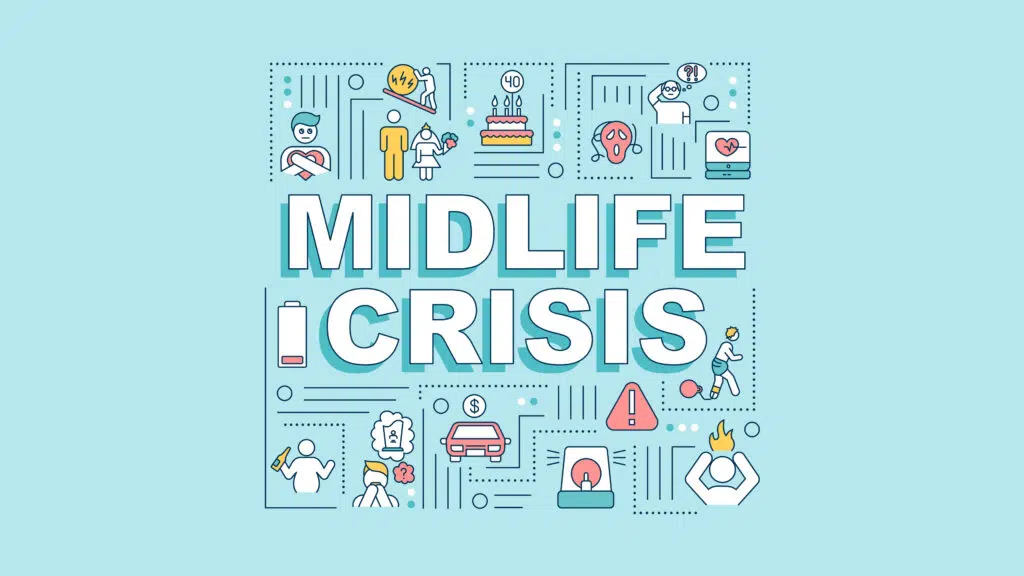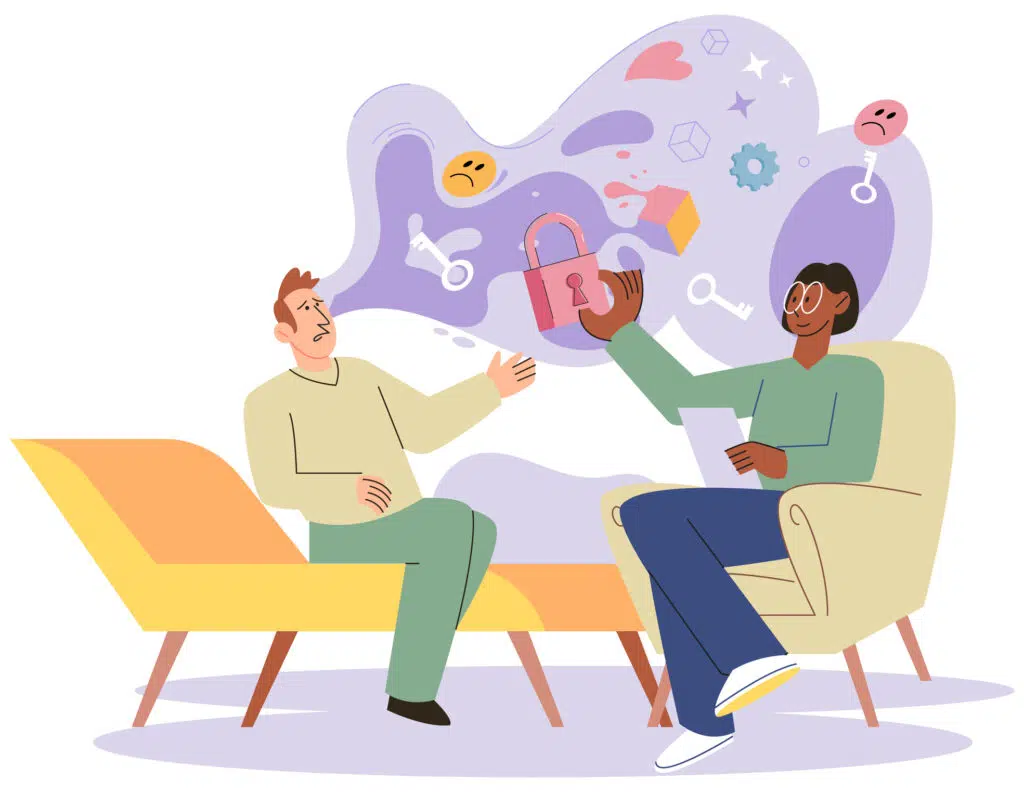What are the Signs You Should See a Couples Therapist?

If you and your partner are going through a hard time, it may be time to see a couples therapist. It can be overwhelming and daunting to delve into your deepest secrets. Speaking to an outside party for the first time can feel terrifying. When you live hand-in-hand with another person, arguments and fights are inevitable. Ideally, you find a couples therapist before a real crisis. This is nice in theory, but the reality is life gets in the way. Often, you’re not going to put in the legwork when it’s not urgent. Couples therapy sounds like the last step before separation. Instead, relationship counseling can be a healthy step in a relationship, even preventative. If you and your partner are struggling, couples therapy may be what you need to move forward. Keep reading for eight telltale signs you could benefit from a couples therapist.
What is Couples Therapy?
The purpose of couples therapy is to help couples identify and resolve conflicts within the relationship. It creates a safe space where you can speak openly without fear of judgment and backlash. A couples therapist won’t tell you what to do, take sides, or make you feel guilty for your actions. Instead, they set the tone for an open conversation so you can explore your relationship and determine how you could change things for the better.
Couples therapy is a time to understand your feelings, figure out how to cope, and better understand each other. It’s for all types of couples, whether they are married or not, live together or apart. Couples therapy can be as preventative as it can be reactive. There is no right or wrong way of doing things as every couple is unique. Through relationship counseling, you can begin to make thoughtful decisions to rebuild your relationship or choose to go your separate ways.
8 Signs You Could Benefit From a Couples Therapist
It’s no secret that relationships are hard. Every day you have to negotiate, cooperate, understand, and connect with your partner. When you add kids, houses, work, and family commitments into the mix, it can get complicated. So, the big question is, when should you see a couples therapist? While every couple is unique, there are a few signs you can watch out for to help you identify the right time to enter into relationship counseling.
1. Lack of Connection
The coronavirus pandemic has put a lot of pressure on relationships. Couples in lockdown, social isolation, and sudden job losses can put a strain on even the strongest of relationships. Feeling connected can look different for everyone, which is why it’s hard to give a precise time on when to see a couples therapist. One of the most common reasons for attending couples therapy is intimacy issues. Sometimes, a loss of connection could be down to something trivial or something more.
2. Growing Resentment
When you harbor resentment towards your partner, you begin to feel unspoken anger. Think of it as the opposite of appreciation. Even the most robust relationships experience rocky times. If you’re arguing more than usual and struggling to move past conflict, knowing how to move the conversation forward can be challenging. Often, communication skills play a role in marital satisfaction.
3. Sense of Indifference
When someone is indifferent toward you, they stop caring or show a lack of interest or concern. High levels of romantic disengagement can contribute to the decline of the relationship. Indeed, some of the most common reasons for separating are growing apart, lack of love, and lack of affection. But that’s not to say that the relationship is doomed; love ebbs and flows.
4. Keeping Secrets or Lying
If you or your partner are keeping secrets and don’t know how to tell them, couples therapy can help open up the conversation. Within a relationship, there are white lies where you tell your partner that they still look amazing after a night of no sleep. But when couples start to keep secrets of significance, it could be time to seek help. For instance, hiding aspects of your finances or secretly spending can be hard to talk about. Couples therapy can help you have a productive financial conversation with your partner and share your thoughts.
5. Most Communication is Negative
At a basic level, communication helps you tell someone what you feel and what you need. From this, you can begin to gain an understanding of your partner’s viewpoint. Couples tend to seek relationship counseling when they experience communication issues. Negative or poor communication can make it feel like your partner isn’t listening, or you may be arguing more than normal.
6. Having the Same Argument with No Resolution
Having the same argument with your partner can be very frustrating. Re-running the same fight with no resolution is draining. Often, an ongoing argument looks different for every couple. If you’re struggling with this, communication problems may underpin your ability to resolve conflict.
7. Infidelity in the Relationship
Infidelity or cheating is a red flag in a relationship. It can cause a lot of hurt, anger, and sadness within the couple. Infidelity is the most commonly cited “final straw” in relationships before domestic violence and substance abuse. At this stage, couples tend to seek help from an outside party to help them navigate through this highly intense time. This includes all types of infidelity, with emotional cheating being just as bad as physical affairs.
8. Feeling like Something is Wrong
Couples therapy can be preventative. It doesn’t have to happen following a big fight, affair, or crisis. If you feel like something is wrong, or your relationship could benefit from speaking to a couples therapist, then it’s worth exploring. It’s not always about solving problems, but preventing them too, especially if you catch them early enough.
When to Seek Couples Therapy
When should you go to couples therapy? How soon is too soon for couples therapy? These are normal questions to ask in a relationship. Many people think about couples therapy as a reactive step to a situation. In reality, any couple can benefit from couples therapy at different stages within the relationship. Relationships go through phases, and dynamics can change over time. While there are common reasons that many couples seek out therapy, the right time for you and your partner is personal to your situation. While couples therapy can help you deal with a breach of trust, it can also help you learn more about each other, improve communication, and better meet each other’s needs.
What Happens During Couples Counseling?
During couples counseling, you can expect to meet your therapist together as a couple. You may have individual sessions down the line, but the first meeting will be together. Your sessions are an opportunity to gain a new perspective about the way your partner thinks and feels. Begin to explore your thoughts and feelings with your partner in a judgment-free environment.
What Happens In The First Couples Therapy Session?
The first couples therapy session is typically when your therapist will need to get to know you. They want to find out what makes you tick, what you like about your relationship, what you want to work on, and the history of the relationship. Your therapist needs to gain an understanding of your relationship. They want to learn about your individual perspectives and any issues you’re struggling with.
Your therapist will want to know what causes stress in the relationships and your main problems, so expect to discuss distressing topics. Although this can be tough, it’s essential to keep an open mind so that you can progress as a couple to the next step.
Generally, you would start with weekly sessions before moving on to monthly or bi-monthly sessions. After each session, your therapist will set homework that focuses on your goals for the week. Your homework is entirely personal to you, your partner, and the challenges you’re facing. The exact format of your sessions will depend on your therapist, their approach, and your goals.
How Do You Find A Couples Therapist?
Once you have decided, as a couple, to visit a relationship counselor, it’s time to find a couples therapist. Dedicate some time to finding the right therapist for you and your partner. One way to do this is to use the Thriving Center of Psychology’s Therapist Matchmaker. As the name suggests, it matches you with your top three ideal therapists, which is very useful in narrowing down your search.
What Questions Can You Ask Your Potential Couples Therapist?
Finding a therapist who both partners like and is suitable for your type of relationship can be tough. There are a lot of therapists out there with different credentials, specialties, and approaches. A good fit is essential in therapy. After all, it’s a time where you have to be vulnerable and you need to be comfortable.
If you have a few potential couples therapists lined up, it’s a good idea to ask some questions and check that they are right for you and your partner. Consider asking the following questions:
- Can you tell me about your background and qualifications in relationship counseling?
- Are the sessions online or in person?
- What is your experience with couples in my situation?
- What’s your specialty?
- How long will therapy last?
- What makes a healthy relationship?
- How do you work with couples in a therapy session?
- Do you need to see us as a couple or individually?
It’s important to be completely honest with what you’re looking for and express what works for you and what doesn’t. Your therapist is there to help you understand your feelings and help both parties see the other’s perspective.
Couples Therapy Q & A
How Can You Bring Up The Idea Of Going to Couples Therapy To Your Partner?
In an ideal situation, both partners are committed to couples therapy. The reality is that, in many cases, one partner may be more interested in going to therapy. In some situations, your partner might flat-out refuse to go to therapy altogether.
Bringing up the idea of visiting a couples therapist is an important step towards going to therapy. There is a chance that your partner may be resistant to the idea, but stay calm, open, and honest about your reasons for wanting to go to therapy.
Focus on the good parts of the relationship and how much you care, and avoid the blame game. Try to open up the conversation of couples therapy and get your partner involved in choosing the therapist. Be patient and give them time to come around to the idea. Make sure to plan the conversation and book in a time where you can both pay attention to each other. If your partner still refuses to go to therapy, consider going to therapy alone to talk through the situation and how you feel.
What Is The Most Common Problem Addressed In Couples Therapy?
Relationships are tough. When you have two people with their own emotions, views, and lives trying to live side-by-side, sometimes it’s difficult to navigate. Some of the most common problems addressed in couples therapy include the following:
- A breach of trust
- Communication issues
- Arguments and conflict
- Lack of emotional intimacy
What Are The Concerns Couples Usually Have?
Common concerns couples may experience in their relationship include:
- Poor communication
- Financial issues
- Sexual differences
- Infidelity
- Different values and beliefs
- Cultural differences
- Stress
Couples Therapy at Thriving Center Of Psychology
If you’re struggling to move forward or want to check in on your relationship, Thriving Center of Psychology’s expert team of couples therapists can support you. You can schedule an in-person or video teletherapy appointment by booking online, or by calling one of our offices.
Couples Therapist in NYC, New York
Couples Therapist in Miami, Florida
Couples Therapist in Fort Lauderdale, FL
Couples Therapist in Los Angeles, CA
Couples Therapist in Princeton, NJ
Couples Therapist in Chicago, IL
Couples Therapist in Boston, MA
Couples Therapist in Portland, OR

How Do I Establish Healthy Boundaries
We often talk about setting healthy boundaries in the workplace, in relationships, with technology, and with ourselves. But what is a healthy boundary, why should you have them for your mental health, and what’s the best way to establish healthy boundaries? Let’s dive in.

Millennials in Crisis: Survey Finds 81% Can’t Afford a Midlife Crisis
Are Millennials a generation in crisis? Millennials are aging. The oldest in the generation is now 43, and the youngest is now 28. With age comes wisdom, but it also often leads to regret, nostalgia, and introspective questions about where people are in life. With the generation quickly approaching “middle age,” many are starting to feel these pressures.

What Are Practical Strategies for Managing Depression?
The number of U.S. adults who have been diagnosed with depression is on the rise, with young adults and women experiencing the most significant increases. We know that the effects of depression can ripple through every aspect of your life.

What Are The Benefits Of Cognitive Behavioral Therapy?
Cognitive behavioral therapy goes beyond managing the symptoms but can help address the root cause of several mental health conditions. Backed by extensive research, CBT is an evidence-based approach that is shown to be effective across various populations.

